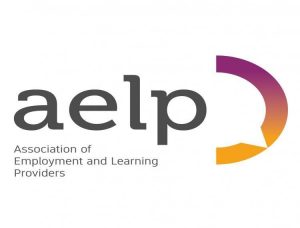The area of learning support has been subject to some fundamental changes as a result of the new rules that came into force at the beginning...
The future challenges for apprenticeships with Mark Dawe

“Skills and Training are about to be transformed – it’s exciting”
Mark Dawe, Chief Executive of The Association of Employment and Learning Providers (AELP), talks to Bud Systems about the future of apprenticeships and the challenges that still need to be overcome.
Apprenticeships have seen significant reform in recent years, in particular the introduction of the apprenticeship Levy. Is the sector in a good place overall? What changes/improvements would you give highest priority?
As a result of the Levy, funding for apprenticeships has gone from 1.5bn to 2.5bn and the Secretary of State has said that skills and apprenticeships are his top-level priority. I don’t think apprenticeships have ever had so much profile and people cheerleading for them. While there have been implementation issues to contend with, there have been real strides forward in achieving the overarching objective of getting more people into training.
The biggest battle we’re currently facing is the lack of funding available for non levy-paying employers. Levy payers are using more funding than the government anticipated, which is negatively impacting the non-levy sector. This is affecting the volume of young people accessing training and the number of lower level apprenticeships available. The risk – if this isn’t addressed – is that the Levy will start appearing to be less successful than it should be.
How do you believe this issue should be addressed?
We believe that an extra 1.5bn is required from Government to take the numbers back up to where they were before the Levy for SMEs.
Some of that shortfall could be subsidised by unused funds from Levy-paying companies, but this would still require topping up. Employers and providers need guaranteed funding every year in order to plan ahead.
You’ve spoken about apprenticeships needing to be rebalanced towards promoting greater social mobility. What are your views regarding recent concerns that some large companies are simply rebadging management training as apprenticeships to claim levy funding?
The ideal scenario is that levy payers should be able to spend their funding as they see fit, with the government investing an extra 1.5bn to address the shortfall in funding for non levy-payers.
Companies are using levy funding in different ways depending on their entry points. Greene King, for example, have more level 2 and 3 apprenticeships, while the likes of Glaxo SmithKline or RBS will have more level 4 – 6 apprentices. Placing constraints on what businesses can do with their funding will hurt some employers.
However, if the Government isn’t going to commit to funding the shortfall, some tough decisions will need to be made. Investment is needed at lower levels to upskill those young people who have fallen through the cracks in the education system.
How can schools promote apprenticeships for young people and redress the belief that university is ‘better’?
There is a legal requirement for schools to let providers in to talk about further education and apprenticeships, and a significant proportion of schools still aren’t doing this. Schools should be engaging with provider networks around the country, and one of the most effective ways to achieve this is inviting successful apprentices back into their own schools to act as positive role models.
That said, it’s understandable that schools have a desire to promote the fact that their students are going on to University. There’s also an element of confirmation bias from teachers, since most have spent their lives within the traditional education system. Combine all of this with the careers approach of previous governments and it’s clear that young people aren’t getting the advice they need.
But I believe we are reaching a turning point. I don’t think we’re far from a situation where certain sectors move away from recruiting graduates towards favouring degree apprenticeships. This will lead to a scenario where graduates struggle to find work in their chosen sectors while their apprentice counterparts are streets ahead of them in terms of experience and earning power.
Over time, when people see the success that degree apprentices are experiencing and hear positive noises from employers about apprenticeships vs. classroom-based learning, there will be a trickle-down effect on attitudes to apprenticeships at lower levels. So ultimately, the market will drive the transformation of attitudes.
Do you think there is too much bureaucracy within the apprenticeship system currently?
New entrants into this market are often shocked by the amount of regulation and administration involved. However, when £2.5bn of Government money is at stake, quality control is obviously very important. Ofsted and the ESFA audits are there to ensure rules are being followed.
That said, the evidencing processes are very bureaucratic, sometimes too much so. To some extent, this stems from a lack of understanding of the practicalities of implementing certain rules. The 20 per cent off the job training requirement is a good example. Employers should be monitoring to ensure that the learning is happening, but not to the extent of giving learners timesheets to record their every move.
Can employers’ objections to form-filling be addressed with end-to-end digitalDigitalisation is absolutely a good thing. I’ve been involved in FE since the early 90s, and even at that point, it was the goal to have digital systems supporting recruitment, initial assessment, formative and end assessment. The technology wasn’t there then, but now that it is, I feel like we’re at a tipping point. We can actually put more of a focus into quality teaching, because digital platforms allow for greater sharing of resources and best practice. Skills and training are about to be transformed – it’s exciting. platforms like Bud removing the paperwork element?
About Mark Dawe
Previously Chief Executive of the OCR examinations board, Mark has been Chief Executive of AELP for four years, and also sits on the Board of WorldSkills UK, the ESFA Advisory Board, the IfATE Quality Alliance and the DfE’s Apprenticeship Stakeholder Board.


